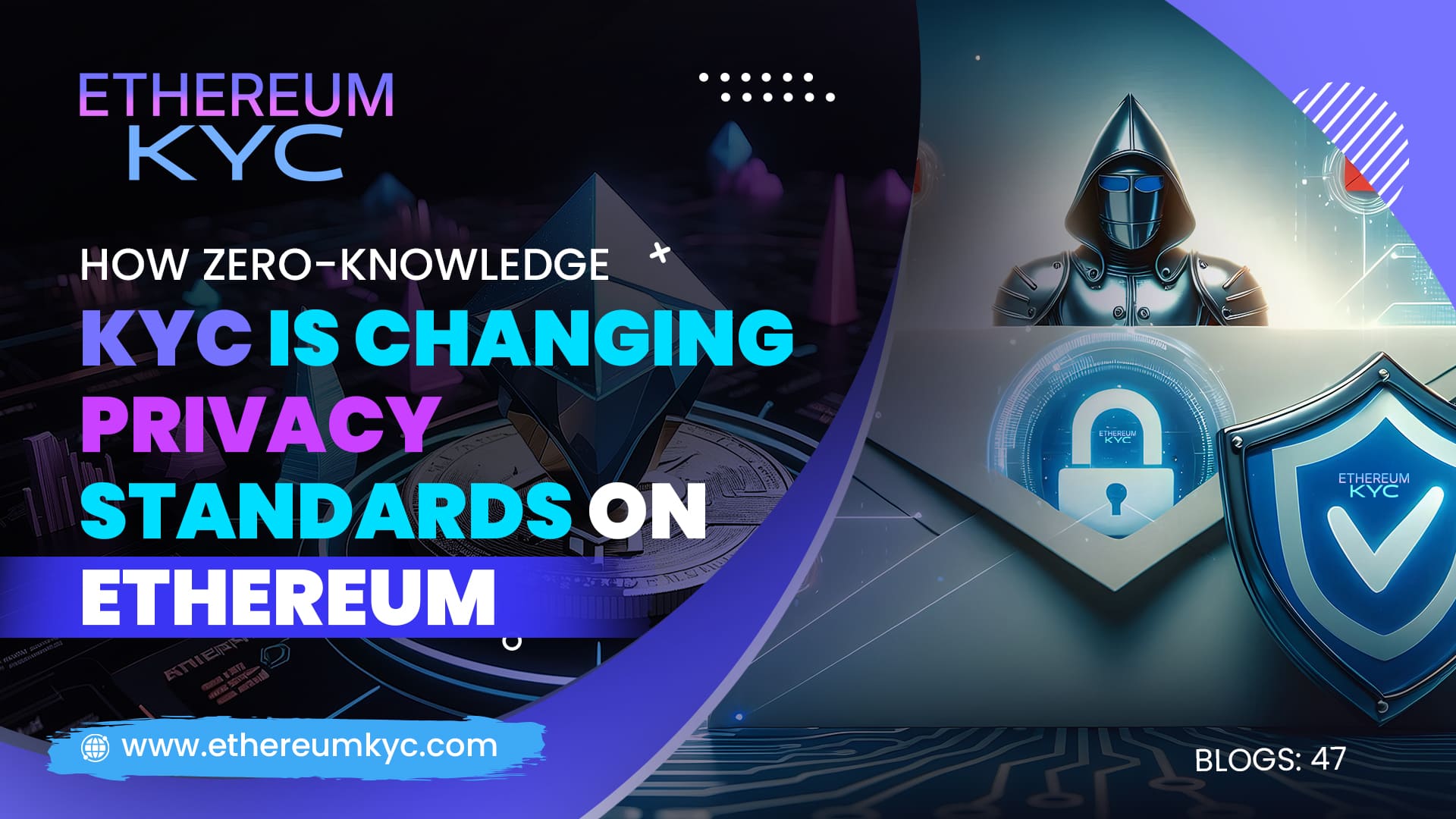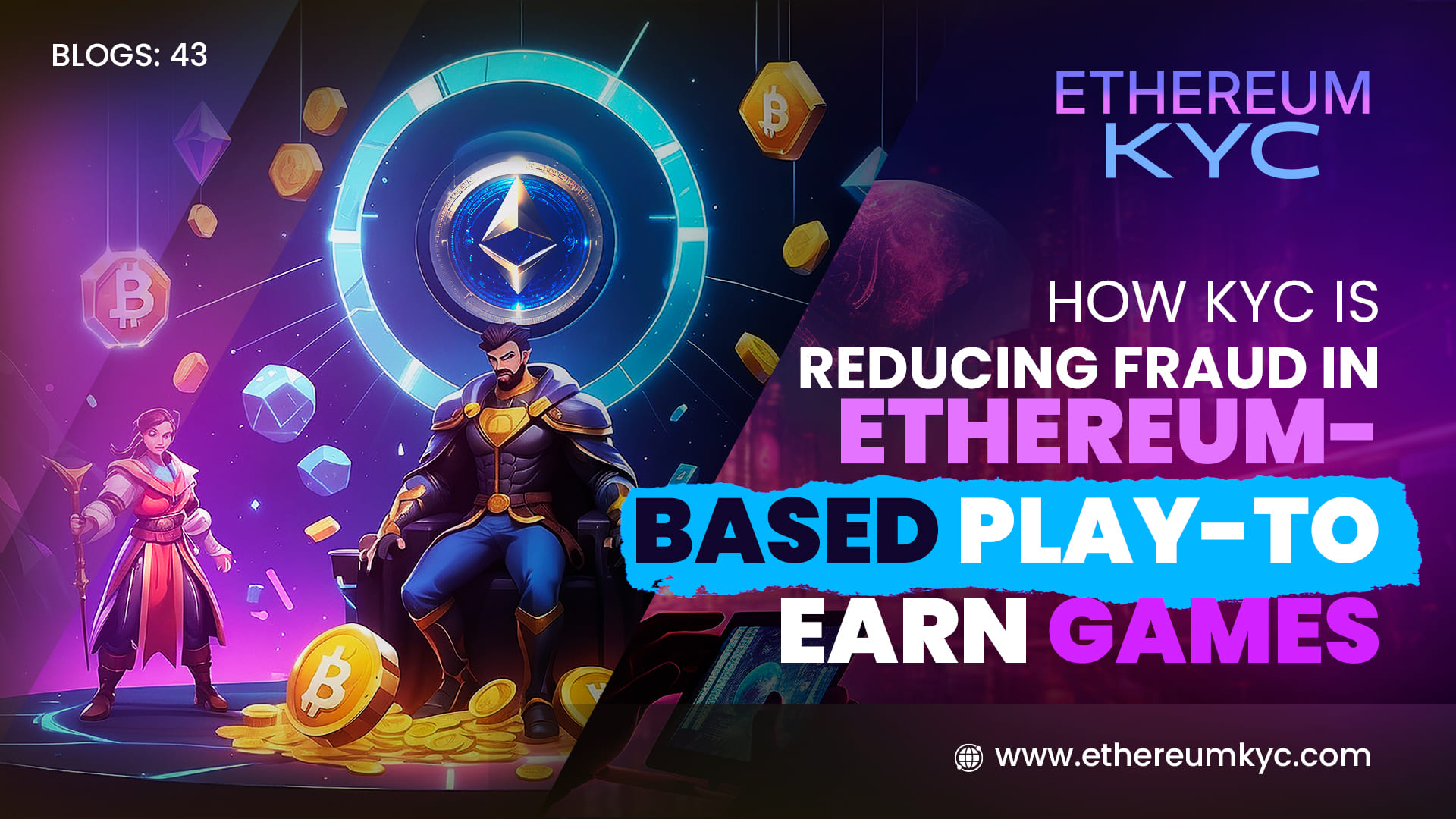November 5, 2024
KYC in Ethereum-Based Crowdfunding: A Growing Need
The rise of blockchain technology and cryptocurrencies has revolutionized how projects are funded, with Ethereum-based crowdfunding platforms leading the charge. These platforms enable startups and entrepreneurs to raise capital globally, bypassing traditional financial intermediaries. However, as this ecosystem grows, so does the importance of implementing Know Your Customer (KYC) protocols. KYC is becoming a critical component in ensuring regulatory compliance, enhancing security, and building investor trust. Here’s why KYC is a growing necessity in Ethereum-based crowdfunding.
1. Understanding KYC and Its Importance
KYC refers to the process of verifying the identities of users to prevent fraud, money laundering, and other illicit activities. In the context of Ethereum-based crowdfunding:
- Regulatory Compliance: Governments worldwide are increasing oversight of cryptocurrency transactions. Implementing KYC helps platforms comply with Anti-Money Laundering (AML) regulations and other legal requirements.
- Investor Protection: KYC procedures protect investors by ensuring that project creators are legitimate and reducing the risk of scams.
- Platform Credibility: Platforms that enforce KYC are often seen as more trustworthy, attracting higher-quality projects and investors.
2. Regulatory Pressures Driving KYC Adoption
As cryptocurrencies become mainstream, regulators are paying closer attention:
- Global Regulations: Bodies like the Financial Action Task Force (FATF) recommend KYC and AML measures for crypto businesses.
- Legal Enforcement: Failure to comply can result in hefty fines, legal action, or platform shutdowns.
- Investor Demands: Institutional investors and cautious individuals prefer platforms with robust compliance measures.
3. Enhancing Security and Reducing Fraud
Implementing KYC can significantly enhance the security of crowdfunding platforms:
- Preventing Fraudulent Activities: Verifying user identities deters malicious actors from engaging in fraud or launching fake projects.
- Reducing Money Laundering Risks: KYC helps identify and report suspicious transactions, aligning with AML policies.
- Building Trust: A secure platform encourages more users to participate, fostering a healthy investment environment.
4. Balancing Privacy and Compliance
One of the challenges with KYC is maintaining user privacy:
- Data Protection: Platforms must ensure user data is securely stored and comply with data protection laws like the GDPR.
- User Anonymity Concerns: Some users value the anonymity that blockchain offers and may be reluctant to provide personal information.
- Solution Approaches:
- Decentralized Identity Solutions: Utilizing blockchain-based identity verification to enhance privacy.
- Selective Disclosure: Allowing users to share only necessary information.
5. Impact on Project Creators and Investors
For Project Creators:
- Access to Funding: Complying with KYC requirements can make a project eligible for listing on reputable platforms.
- Investor Confidence: Transparency boosts investor trust, potentially leading to more successful funding rounds.
- Legal Protection: Helps avoid legal issues that could arise from non-compliance.
For Investors:
- Risk Mitigation: Reduces the likelihood of investing in fraudulent projects.
- Informed Decisions: Access to verified information about project teams aids in decision-making.
- Regulatory Safety: Ensures that investments are made within legal frameworks.
6. Implementing KYC Effectively
Strategies for platforms to implement KYC without hindering user experience:
- User-Friendly Processes: Simplify the verification process to encourage compliance.
- Third-Party Services: Partner with specialized KYC providers to handle verification securely and efficiently.
- Education and Transparency: Clearly communicate the importance of KYC and how user data is protected.
7. The Future of KYC in Ethereum Crowdfunding
Looking ahead, KYC is likely to become standard in the crypto crowdfunding space:
- Technological Advances: Innovations like zero-knowledge proofs may allow for verification without compromising privacy.
- Increased Institutional Participation: More institutional investors may enter the space as compliance measures strengthen.
- Global Standards: International cooperation could lead to standardized regulations, making compliance more straightforward.
Conclusion
KYC is no longer optional in the evolving landscape of Ethereum-based crowdfunding. It serves as a cornerstone for legal compliance, security enhancement, and trust building between platforms, project creators, and investors. By embracing KYC, crowdfunding platforms can foster a more secure and robust ecosystem that encourages broader participation and paves the way for sustainable growth in the blockchain industry.





